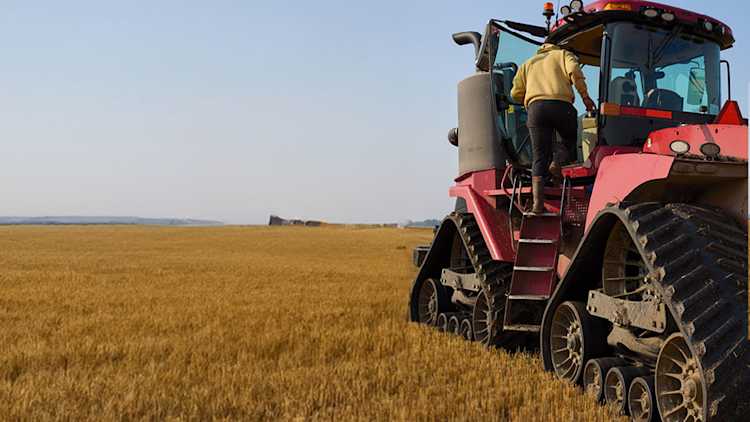Formalizing HR practices for modern farm management

Human resources management practices are common in off-farm businesses but are less likely to be in place on farms. There is, however, great value in having formalized HR practices for farm operators.
From a farming perspective, HR can be thought of as a skillset that facilitates people management.
Viktoria Schuler, project manager of HR services with the Canadian Agricultural Human Resource Council (CAHRC), attends numerous HR workshops and conferences every year and observes that not many farm operators attend.
HR can be especially helpful if the operation grows larger or a family member quits or retires.“Usually in agriculture, you start thinking about HR when your worker doesn’t show up or when you have a crisis and you ask, ‘What can I do? I have nobody to run my combine today,’” she says.
Although HR practices are uncommon for family-run farms, they can be beneficial when managing anyone – family included. HR can be especially helpful if the operation grows larger or a family member quits or retires.
Recruitment and retention practices
HR practices can prove extremely valuable in hiring employees with the necessary skills and experience by ensuring they’re a good fit.
An HR consultant can help identify the positions needed, write job descriptions, place job advertising, screen applications and conduct interviews, Schuler says.
Consultant Erin Duquette says labour management is a huge piece of HR as farms may require a significant number of workers, especially during planting and harvesting seasons.
“HR professionals can help manage the hiring process and ensure the farm has an adequate workforce with the right skills and experience,” Duquette says, adding HR can also assist with labour planning throughout the year.
Once you’ve hired your employees, the next step is thinking about retention strategy, and usually, compensation and benefits tops the list, Schuler says.
“How to build your pay structure – would you include a bonus? Do you pay for holidays or not? Do you pay overtime?” Schuler says these are all important things to consider. Also on that list are benefits like dental insurance and additional disability insurance.
HR can also play a vital role in performance management.
“What happens if your employee is not doing the job you expected? Is it because the initial recruitment went wrong? Or is it that you’re not giving proper instructions?” Schuler says.
Compliance with regulations
Having HR processes in place can also ensure farms are compliant with all the regulations they’re affected by, and thereby reduce the risk of penalties, fines or legal action.
“Every section of HR, ranging from recruitment to temporary foreign workers, has certain legal obligations and compliance issues,” Schuler says.
She says employers can be audited, which could involve requests to provide payroll records, employee agreements, agreements for accommodation and more.
Duquette says Service Canada has been sending out inspectors more frequently since the pandemic, and they’re getting into the nitty gritty details about workplace conditions, workers’ hours, and how they’re paid and how much.
“I would get a maximum of one audit every other year, now I get two to three audits a year,” Duquette says.
An audit can shut down an operation’s ability to bring in foreign workers or send them home. “It essentially pauses all processing until you can prove that any non-compliance issue they’re looking into is satisfied,” Duquette says.
Risk assessment and mitigation
Also falling under the HR umbrella are health and safety policies, health and safety training, accident investigation and reporting, and identification of hazard management.
Health and safety, workplace safety and workplace wellness are huge topics, Schuler says.
“There is a federal act for occupational health and safety legislation but it’s regulated under provincial legislation, so in each province, there are certain rules and regulations that need to be followed,” she says.
HR professionals can also play a big role in insurance management, working with insurance providers to ensure the farm has adequate coverage for potential risks and assist with claims management.
Conflict resolution
Duquette stresses that conflict resolution is a major component in any workplace and addresses things like workplace violence and harassment. Employee conflicts can disrupt farm operations and create additional risks.
“It has to be addressed essentially by a third party, someone who is non-biased,” she says.
To learn how to incorporate more HR practices on your farm, check out the CAHRC. This national, non-profit organization focuses on addressing human resource issues facing agricultural businesses across Canada.
From an AgriSuccess article by Richard Kamchen.